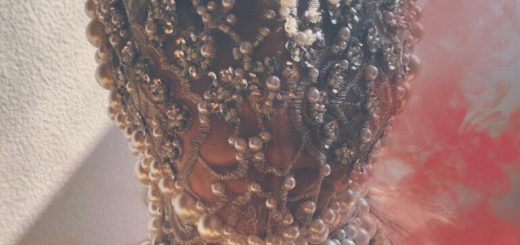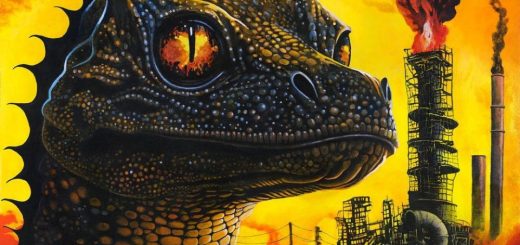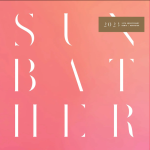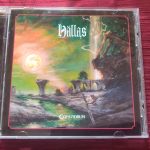Closure in Moscow: ‘Soft Hell’ Review
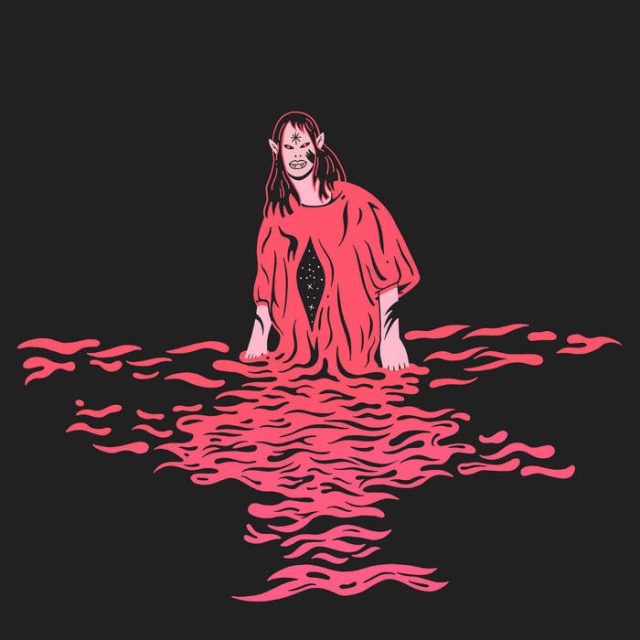
The album artwork for ‘Soft Hell’
Time is a scary and painfully quantifiable unit of measurement and in recent years, few bands made this more apparent than Closure in Moscow. A little background: their beginnings in the eclectic post-hardcore space saw them gain a significant following quickly after the release of their first EP The Penance and the Patience. This was followed by debut album First Temple a year later, with the Australian unit firmly establishing themselves as one to watch there and then.
The 2014 release of their funkadelia-packed sophomore trip Pink Lemonade, an ambitious meta-conceptual piece, was somewhat divisive but always danceable, with the album being a regular fixture of my summer rotation. And then nothing. Time being its burdensome self left followers of the band fast approaching terrifying Tool levels of album release anticipation. There was a brief period where it looked like Moscow might actually close before the new record dropped.
Nearly a decade later and just when all hope was lost, Closure in Moscow has resurfaced with Soft Hell. And no wonder it took so long – thematically the record is self-described as:
“Getting comfortable with chronic discomfort caused by the choices that fears and trauma lead you to make. This is life in a soft hell. There are enough distractions to stave off facing up to it, you can keep yourself in denial to avoid it, and things can just keep ticking along. Life becomes a fever dream of creature comforts and time killers, floating further into a lake of fire. People come along to pull you out, but they too get burned when you feel too stuck to climb with them.”
With this clearly being a more personally driven record, Soft Hell stands in stark contrast to Pink Lemonade and its high-concept narrative surrounding a fool’s journey to enlightenment, complete with a cult analog and surfing cyborgs. There are still glimmers and flashes of the bravado and dry comedic flair the band developed lyrically – songs like Absolute Terror Field containing the lyric “Discord kitten” is certainly a choice – but this is an overall far more grounded take on the existentialism presented previously.
Musically we find a far more pronounced sound here – the comparisons to The Mars Volta that previous records occasionally harkened feel highly dated, this is very much its own sound with a broadly forward focus. The band hasn’t completely abandoned their roots – Better Way is a track that would have fit just as well as First Temple, as with Holy Rush to a lesser extent. The rest of the record in comparison, mostly plays with comparatively uncharted territory for the band. This is also an altogether mellower experience, the excessively catchy Primal Sinister notwithstanding.
Throughout, Christopher de Cinque demonstrates his strongest vocal performance yet – particularly pertinent on tracks like Don Juan Triumphant and album highlight Lock & Key. He throws everything but the kitchen cinque (a quip that entirely hinges on the pronunciation of his name, don’t let me down sink man) at the vocals on this record, with yet more highlights on Lovelash. The vocal performance is equally supported by strong melodic choices, with tracks like Keeper of the Lake bouncing around all over the place in this regard in a way that few vocal-driven bands manage to successfully land.
The album also has plenty of strong instrumental moments, with plenty of opportunity for guitarists Mansur Zenneli and Michael Barrett to shine on Primal Sinister and the most funk-driven track on the record, which despite its name is more than just Fine. Lead work on Lock & Key is also equally impressive. Lovelash among other tracks presents plenty of space for the rhythm section to fill and they do just that – Salvatore Aidone manages to include plenty of strong fills here and across the record. Another album highlight for me: the bass grooves that Duncan Millar puts down on Absolute Terror Field.
It’s not a perfect record – the mix feels flat in places and guitars are often either a tad quiet or too overbearing depending on the part of the song. The pacing leaves something to be desired too – the title track feels a little odd in the space it takes on the record and could perhaps have been moved earlier for greater effect – and while the Jeff Buckley-esque feel of My Dearest Kate makes for a pleasant and certainly heartfelt closer it does emerge as an overall strange inclusion especially considering Lovelash and its triumphant climax.
Despite these qualms, Closure in Moscow delivers with Soft Hell a markedly more cohesive record than its predecessors. The album doesn’t maintain all of the fun and the funk of Lemonade-era tracks like Neoprene Byzantine or Happy Days, nor does it soar for the post-hardcore heights of First Temple, but instead attempts to be its own beast. In my view, successfully so: Soft Hell stands as a deeply personal statement from a renewed and matured band who have found quite a lot to say in their lengthy absence.

